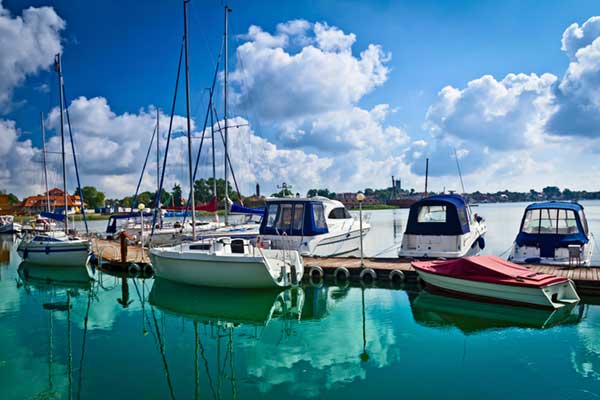For water fun and safety, there are items you must legally have on your watercraft—life vests, fire extinguisher, throwable floatation device, and properly working lights—but make sure the boat itself and the dock are safe, too! July 2012 saw some horrific fatal accidents near boats and docks. A 20-year-old Port Huron man entered the water behind a moored boat and became disabled as he tried to climb onto the swim platform. Friends trying to pull him onboard reported getting shocks. He could not be resuscitated. An investigation confirmed voltage behind the boat, caused by an AC-to-DC fault in the battery charger that energized the underwater gear, and there was no AC-DC bonding connection.
In another incident, a young woman was electrocuted by an energized dock ladder.
To help prevent such tragedies, the National Electrical Contractors Association says:
- All installations should be performed by a professional electrical contractor.
- All dock receptacles must comply with the National Electrical Code, which mandates a ground fault circuit interrupter (GFCI). A GFCI measures a circuit’s current and senses any imbalance (such as a discharge into the water), which trips the GFCI and cuts off the power.
- Test a GFCI at least monthly. Locate it along the ramp to the dock so it can be easily tested by local fire departments.
- Metal dock frames should have “bonding jumpers” that connect all metal parts to an on-shore grounding rod. This means any dock part that becomes energized by electrical malfunction will trip the GFCI or circuit breaker.
- Ask neighbors if their dock electrical systems have been inspected and are up to Code.
- Household wire is not suitable for boats.
- Do not use wire nuts (these are for solid conductor wire, which should never be on a boat) or splice connectors (can cut wire strands)!
- Fuses are rated to protect the wire, not the stereo. If a fuse blows continuously, something else is wrong.
- If you rent a dock or boat, notify the owner of safety violations immediately.
- Have your boat’s system (especially with onboard generators) checked at least annually, and when something is added or removed.
- Ropes, string, masts and rigging also conduct electricity—don’t be the common ground between water and electricity!







Why users still make use of to read news papers when in this technological world the whole thing is presented
on net?